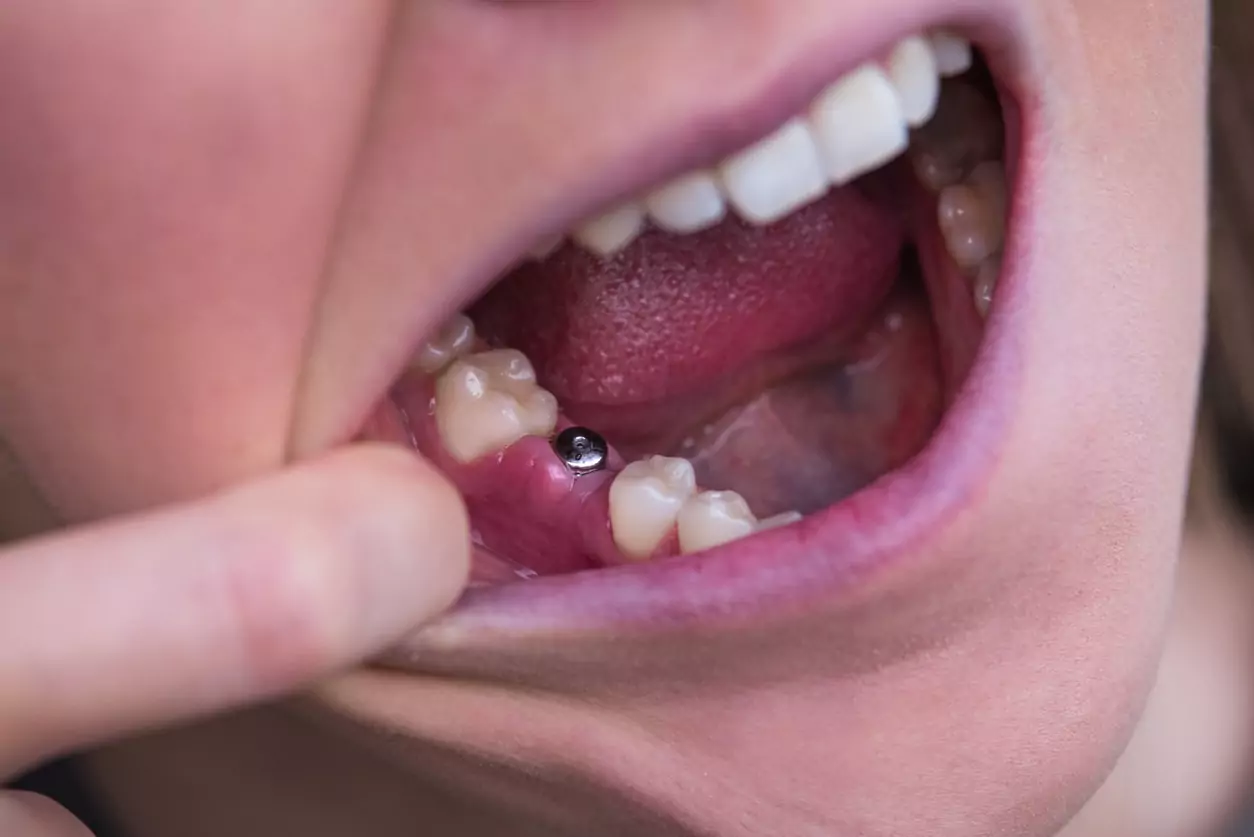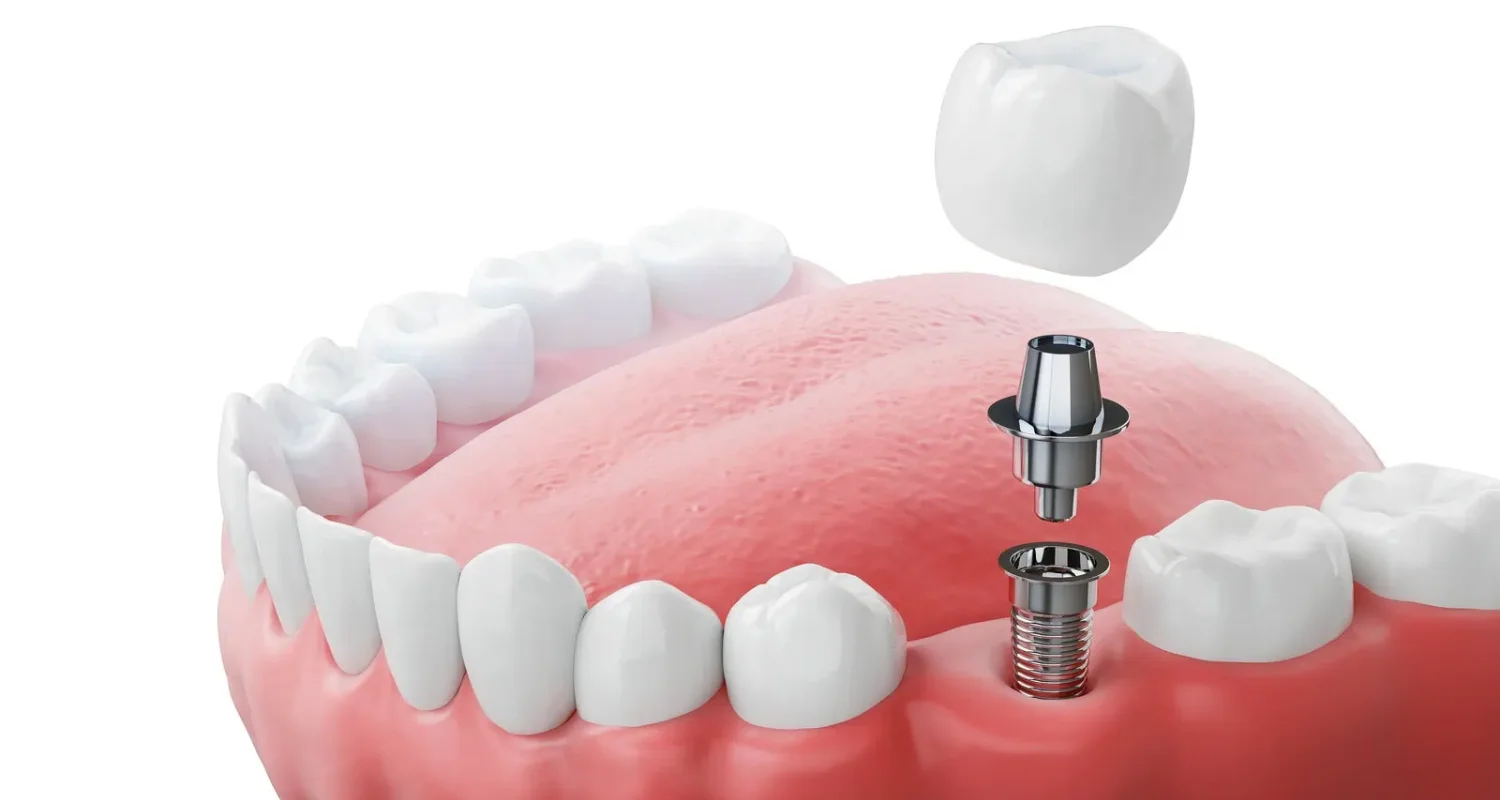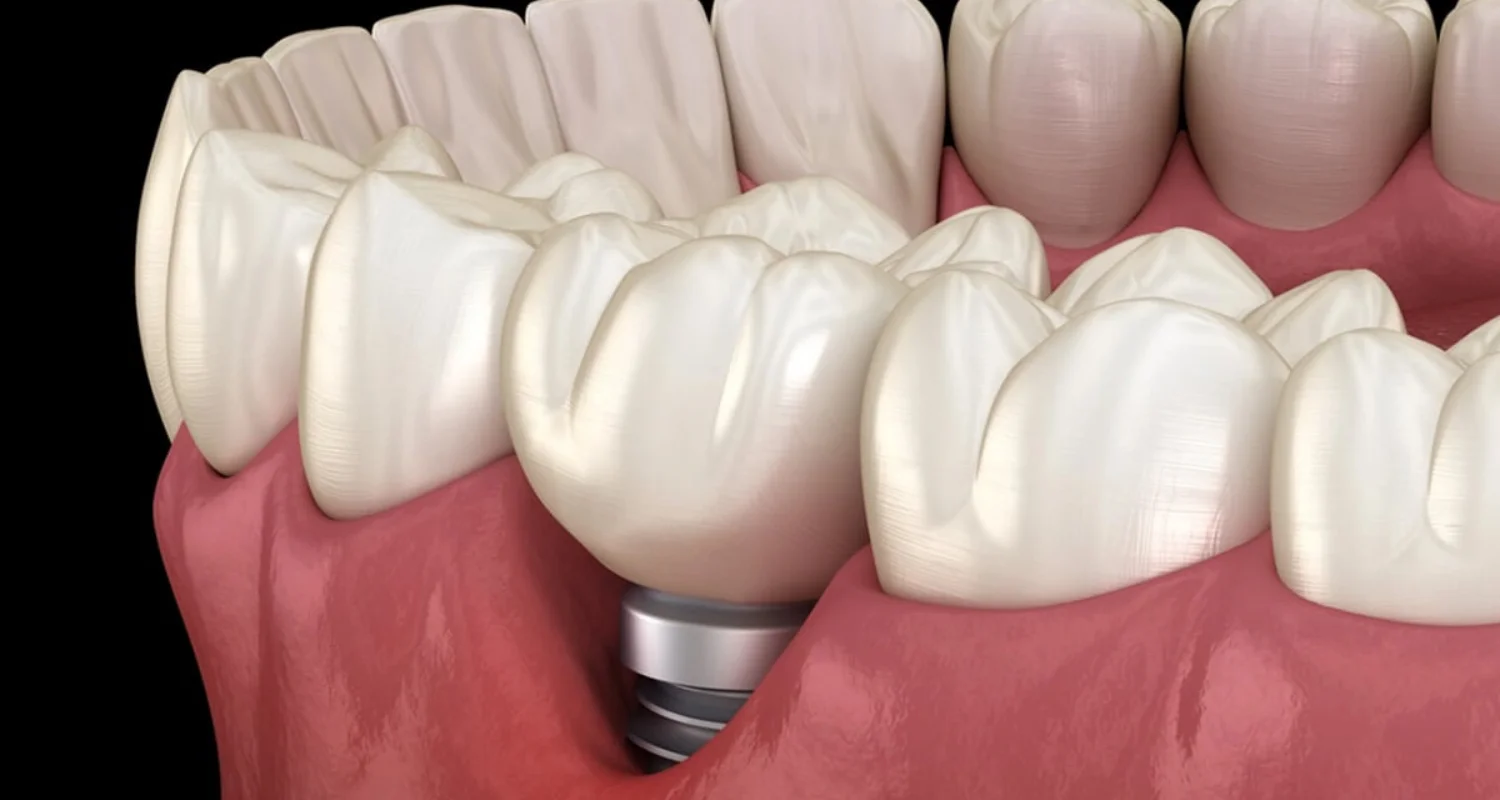Dental Implants
What are dental implants?
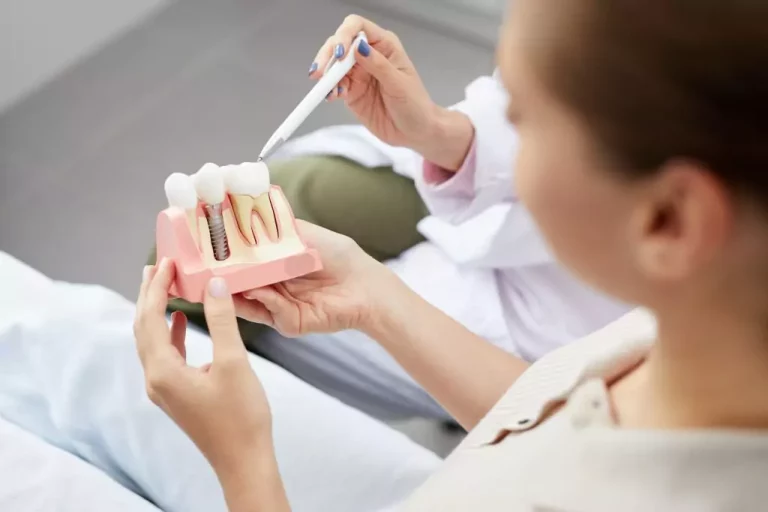
Dental implants are an alternative to replace missing teeth. These consist of a titanium bolt that is placed in the jawbone, replacing the root through a surgical process. A dental crown that has the appearance of a natural tooth is then placed on the screw.
Dental implants do not need to wear down adjacent teeth to serve as support for replacement parts. In addition, they do not require the maintenance that must be given to a conventional false tooth.
Treatment process

The process to follow requires an initial consultation with the dentist to evaluate the oral health condition and determine if the dental implant is the appropriate alternative to achieve oral rehabilitation.
The process to follow requires an initial consultation with a dentist to evaluate the oral health condition of the person (patient) and diagnose whether the dental implant is the appropriate alternative to achieve oral rehabilitation.
The treatment route can go through the following stages:
● Diagnostic consultation and evaluation. X-rays and models of the teeth and jaw may be taken.
● Inspection of the clinical history. In this step, it is verified if there is any pre-existing health condition that may affect the procedure, as well as the medications of current treatments. The dentist has the option of prescribing antibiotics before starting, as a measure to prevent infections.
● Treatment plan. It is projected based on the patient’s health condition and takes into account the number of teeth to be replaced, the state of the jaw, and the remaining teeth.
Types of dental implants
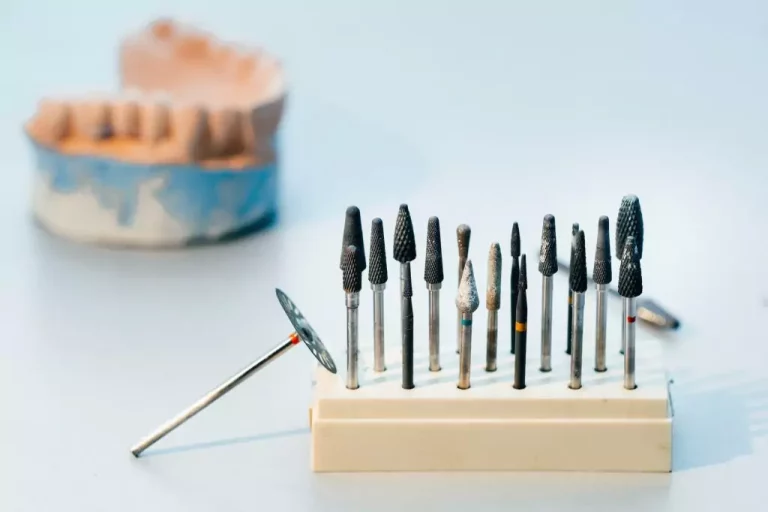
There are different types of dental implants according to the different diagnoses that can be presented. The unitary dental implant facilitates the replacement of a dental piece. If the person has lost several pieces, the option is a bridge that is supported on two or more titanium dental implants that fulfill the root function.
If the person has lost several pieces, the option is a bridge that is supported on two or more titanium dental implants that fulfill the root function and the fixed prosthesis is fixed on that structure with the new pieces, giving functionality to the dental system.

19 Natural Antibiotics to Ward Off Any Dental Infection
Sign up to receive daily email dentist tips and challenges, as well as our comprehensive Better smile Guidebook.
Advantages of dental implants
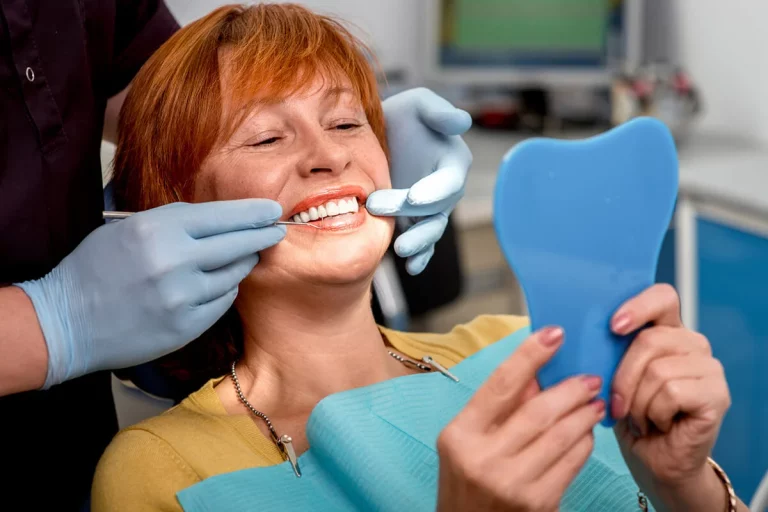
Dental implants offer comfort and naturalness in the aesthetic aspect. In addition, they facilitate the functional rehabilitation of the mouth. Other advantages are:
- The teeth adjacent to the implant do not move, they do not move, facilitating the functionality of the mouth.logies with a high prevalence in the population.
- The bone of the tooth is preserved.
- It has no effect on adjacent teeth.
- It is a rehabilitation alternative that offers durability and resistance.
- Comfort and naturalness in the aesthetic aspect.
Conclusion
When considering dental implants to restore those missing teeth, the following should be taken into account:
- The teeth adjacent to the implant do not move, they do not move, facilitating the functionality of the mouth.logies with a high prevalence in the population.
- The bone of the tooth is preserved.
- It has no effect on adjacent teeth.
- It is a rehabilitation alternative that offers durability and resistance.
- Comfort and naturalness in the aesthetic aspect.

19 Natural Antibiotics to Ward Off Any Dental Infection
Sign up to receive daily email dentist tips and challenges, as well as our comprehensive Better smile Guidebook.
Our Doctor
Meet Doctor
Dr. Andreas
Dental specialist

19 Natural Antibiotics to Ward Off Any Dental Infection
Sign up to receive daily email dentist tips and challenges, as well as our comprehensive Better smile Guidebook.



